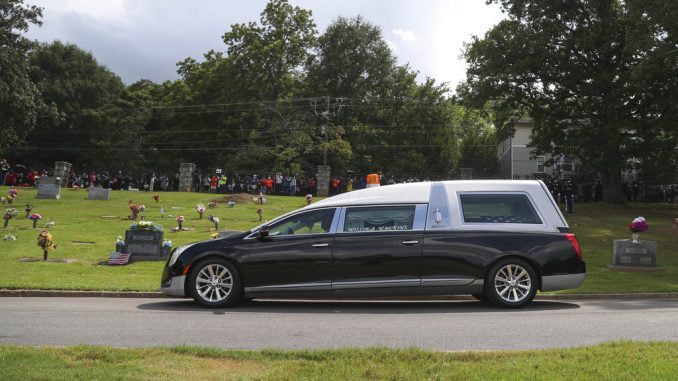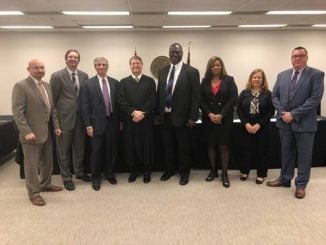
 Last month, we lost some notable political figures both nationally and locally.
Last month, we lost some notable political figures both nationally and locally.
Civil rights icon and longtime U.S. House Rep. John Lewis (D-Ga.) passed away from pancreatic cancer on July 17 at the age of 80.
Former Republican presidential candidate and Black Voices for Trump co-chair Herman Cain died from the coronavirus on July 30. He was 74.
UNC Wilmington Prof. Mike Adams, a prominent conservative voice and frequent target of leftists in academia, was found dead July 23 of what the New Hanover County Sheriff’s Office later described as a “single gunshot wound to the head.” Prof. Adams was 55.
If you talk to longtime fans and supporters of all three individuals, you’ll hear about their distinctive and notable accomplishments, about what leaders they were in their respective communities, and what a great loss their deaths are.
But if you talk to some people who strongly disagreed with these men in life now, their responses to the passing of these three men are quite different, and sometimes very ugly.
Some of the things I read after the deaths of Lewis, Cain, and Adams made me cringe. At times it made me angry. A common sentiment I saw for all three to varying degrees went along the lines of “Good riddance. The world is a better place without this person.” That’s the cleaned-up version. In the instances I saw of it, the actual wording was not fit for printing.
In Mr. Cain’s case, a common refrain from the left I saw was that he “deserved” to die from the coronavirus because he was often seen not wearing a mask. Sean Casten, a Democratic candidate for the 6th Congressional district in Illinois, tweeted this out:
“I’m truly sorry for Herman Cain’s family. And I’m truly sad that Louis Gohmert [Congressman] got COVID. But I have absolutely no sympathy nor tolerance for people who are willingly not wearing masks that would protect others from the viruses they are carrying.”
If you have to insert a “but” in any message you’re posting under the pretense of expressing sympathy, you’re doing it wrong.
In Prof. Adams’s case, I read some of the vilest things I’d ever seen written about a political figure in life or death. And it wasn’t just from random Twitter trolls but other professors. One journalism professor from a different university proclaimed that Adams was “going to hell” for his conservative views and would not be missed by anyone.
In Rep. Lewis’s case, I saw fewer instances of nastiness than with Cain and Adams. But still enough to make me shake my head in disgust.
People’s opinions about political figures whom they disagreed with in life typically don’t change after their death. And that’s okay. But far too often, what’s said in the immediate aftermath is better left unsaid — period — if not out of a simple sense of common decency then out of respect for the person’s family.
There have been times over the years where a political figure with whom I had strong disagreements and whose character I often questioned in life passed away. In those instances, I quietly said a prayer for their family and moved on, choosing not to speak ill of the dead.
The debate over what they did in life could come later. But in the aftermath of their death, the time was for grieving among that person’s family and other loved ones.
There are very few political issues we as Americans are civil about anymore. I wish showing basic respect for the passing of those we disagree with was one of them.
Stacey Matthews has also written under the pseudonym Sister Toldjah and is a regular contributor to RedState and Legal Insurrection.



